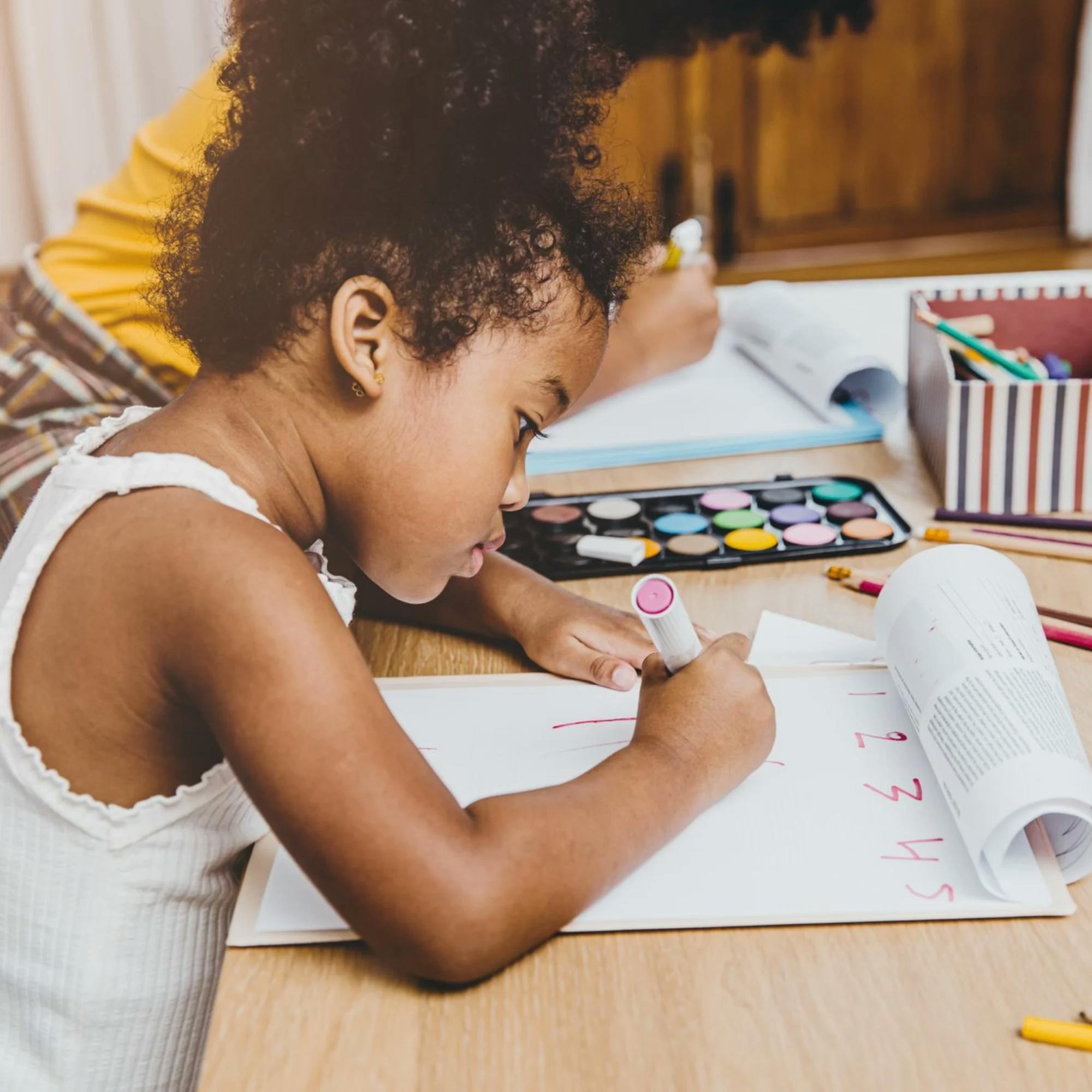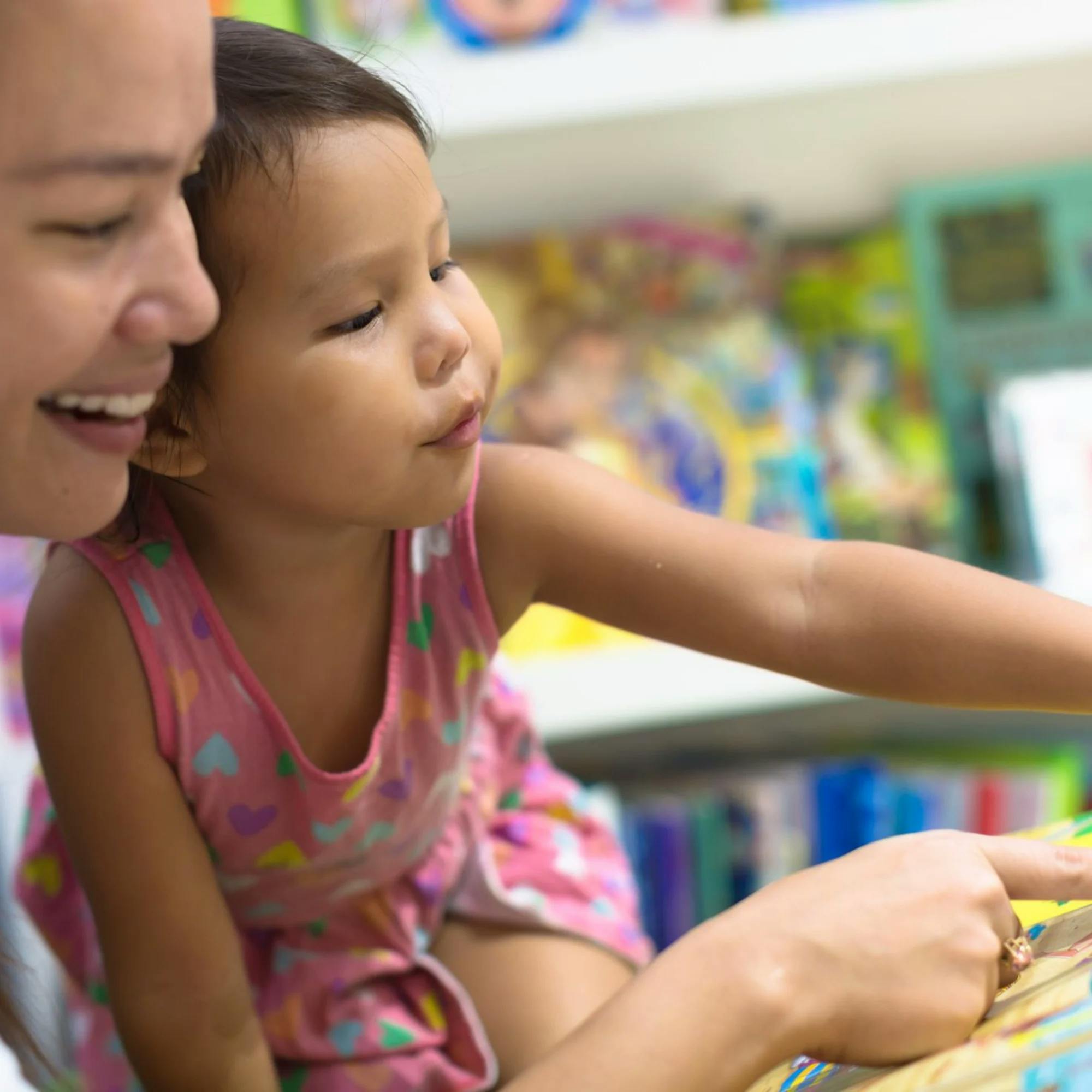
The Relationship Between Speech Therapy and Academics
 Abby Barnes, M.S., CCC-SLP
Abby Barnes, M.S., CCC-SLP
Parents often ask speech therapists about their child’s ability to learn letters and numbers, and whether developing these skills should be part of speech therapy. They may notice that therapy sessions for younger children are usually based more on play than on academics.
Of course, learning the ABCs and 123s is important. But in my work as a speech-language pathologist, I’m not as focused on those skills.
Does that sound a little surprising? It may! And it’s understandable–I know parents and caregivers feel pressured to ensure their child is ready for kindergarten so they’ll perform well in school. Speech therapy can absolutely play a role in literacy, comprehension, and other skills that contribute to school success, but it may not be in quite the way you think.
Let’s explore the relationship between speech therapy and academics, along with what you can do to support your child in their speech and language development.
How are academics different from speech and language?
When a child learns the alphabet or how to count, it’s an exciting accomplishment! After all, these are foundational skills that your child will build on as they learn to read, write, calculate, and make their way through school and society.
But speaking of society, think about what else we need to learn in order to navigate life, whether for our job, relationships, or everyday social situations. One skill that’s vital for success in these areas is communication. We have to be able to communicate with others and express ourselves clearly to family, friends, co-workers, and those we meet.
The main goal of speech therapy is to ensure children can communicate their thoughts and needs clearly.
One day, your child will be grown and navigating through all of life’s experiences as an adult. Learning basic communication skills starts at home, at a very young age–well before counting to 10 and sounding out words. As a caregiver, you play a big role in your child’s speech and language growth. And this is what speech-language pathologists are focused on: supporting children and families in speech and language development, from early communication skills all the way up through higher level speech and language abilities.
That’s why you likely won’t see speech therapy sessions focused on teaching counting or the alphabet, even if the child doesn’t yet have these skills. Instead, the main goal of speech therapy is to ensure children can communicate their thoughts and needs clearly.
Think about it like this: Would you rather your toddler be able to tell you what they need when they’re upset? Or would you rather them be able to name letters on a page? The ability to communicate important information is an essential functional skill. It’s a building block for all the necessary communication skills to come, and it’s what speech therapy is there to support.


Speech and language contributes to academic success
With that said, it’s true that language and literacy are strongly linked. It’s been well documented that a young child’s verbal abilities can go on to affect their reading and writing in elementary school. For example, the National Early Literacy Panel found that the ability for children to produce and comprehend verbal communication was one of the earliest predictors of literacy achievement.
In addition, certain communication problems, such as speech sound disorders and language disorders, can affect a child’s classroom performance. So while academics aren’t specifically taught in speech therapy, the work being done in therapy contributes to later school success.

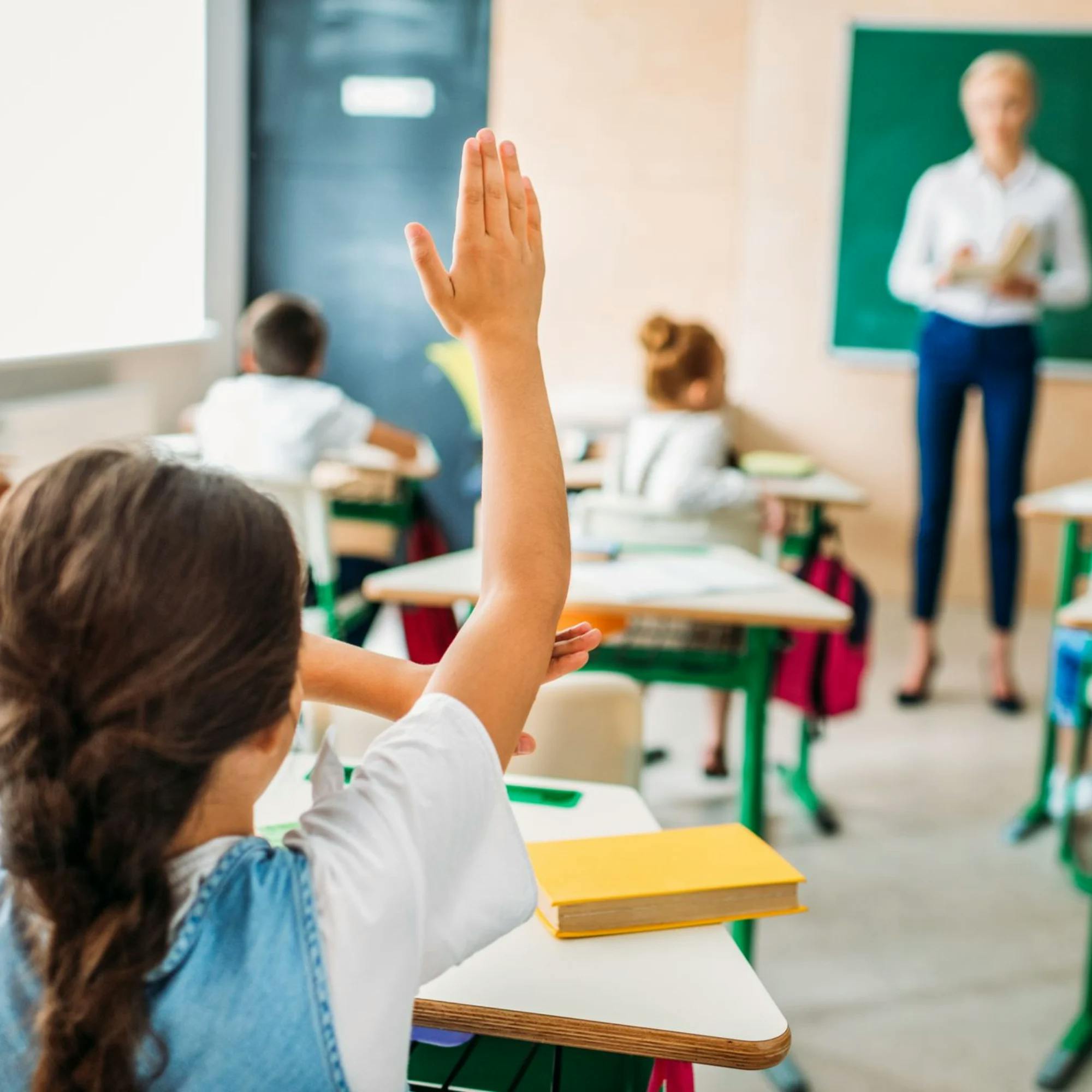
Is your child on track with their speech and language?
In many cases, kindergarten–and even preschool–is more rigorous and academically focused than a few decades ago. So it makes sense that families are concerned about their child being ready. But before you worry too much about letters and numbers, take a minute to think about your child’s current communication abilities. Consider questions like these, which can also affect school readiness:
Can my child use words to tell me what they need?
Can my child express what they need to say through phrases and sentences?
Can my child communicate important safety information, such as their name and phone number?
Is my child’s speech clear and easy to understand?
Does my child play appropriately with toys?
Does my child play with other children?
It helps to be familiar with the standard speech and language milestones for children. While each child is unique, and many kiddos progress in their own way, parents and caregivers should be aware of these developmental markers:
You'll find milestones for kids of all ages, from newborns to teens, on our Learning Center homepage.
If any of these questions or milestones give you pause, it may make sense to contact a speech-language pathologist. They can answer your questions and perform an evaluation to determine if your child would benefit from speech therapy.
Teaching communication through play and relationships
You may have noticed that a few of the questions above focus on playing. Many parents and caregivers don’t realize how important play is for building speech and language skills–which is why it’s a big part of speech therapy. Play is the way kids learn and experience their world. There are many important concepts they can begin to grasp just by playing with someone.
For example, when a child plays with another person, they learn that there is a back-and-forth exchange. For example, one person rolls a ball, and the other pushes it back. Or one person blows the bubbles, so the other can pop bubbles. This is the same pattern of communication: one person talks, the other responds, and so on. Children learn this back-and-forth pattern in the early days of play, which helps them learn how to speak with others.

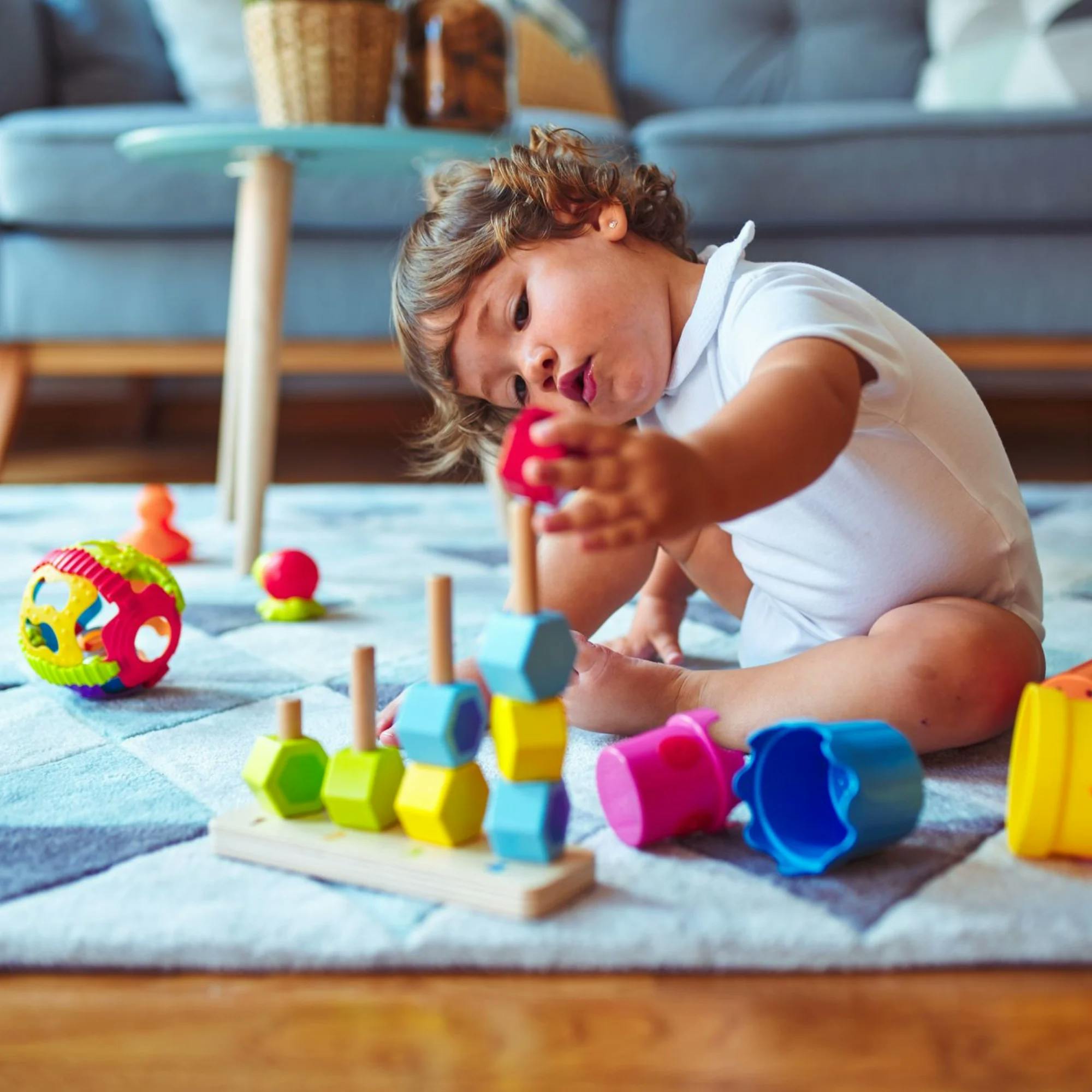
Play also teaches cause-and-effect relationships. This is important because communication is essentially a cause-and-effect relationship itself! When we communicate, we learn that if we tell someone what we need or think, we will receive something in return.
During play, children learn cause-and-effect relationships in many ways. They push buttons on a toy and hear the sounds it makes. They stack blocks and knock them down. If you knock a tower down, it’s going to go crashing to the floor!
You can teach children many speech and language skills during play activities–and learning is a lot more fun that way.
You can teach children many other speech and language skills during play activities–and learning is a lot more fun that way. Think about it: Would your child rather learn new vocabulary terms by going through flashcards, or by playing with the actual items? Play activities can actually help children learn more because they’re more engaged in what they’re doing. To practice speech and language, you can try things like playing with a toy kitchen, pretending to play “house” or “doctor,” playing a simple board game, getting out some hand puppets or stuffed animals… the opportunities are endless!

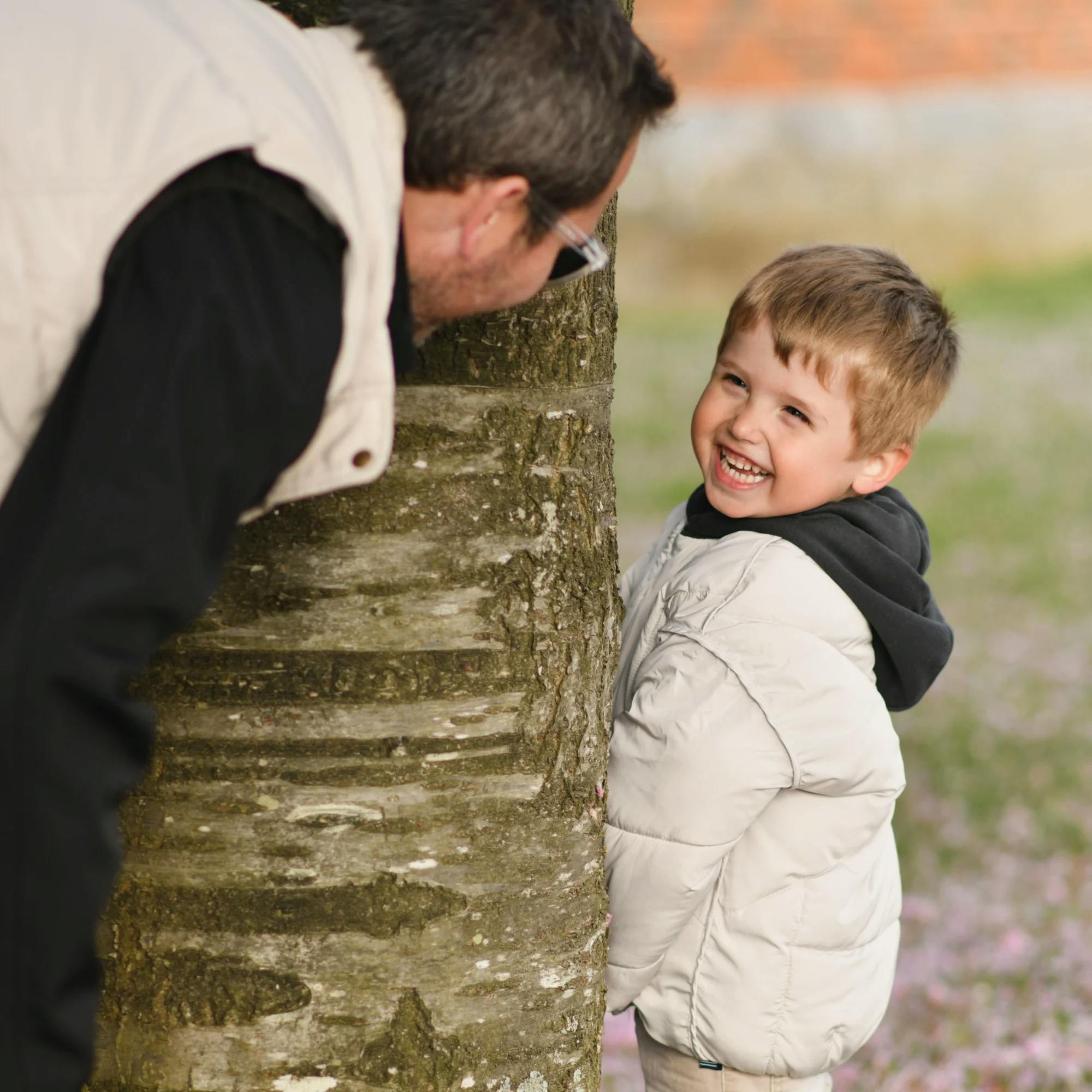
Building a foundation for lifelong communication
If you’ve tended to focus more on your young child’s academic readiness than on their communication abilities, don’t worry. It’s never too late to support your child’s speech and language development if they need it.
And if your child is already receiving speech therapy, you can see why basing therapy sessions on fun, play-based activities works so well! Clear communication is an essential lifelong skill, and speech therapists want to do everything they can to engage children in developing these abilities.
Academics will always be important. And strong speech and language skills do support academic success. But your child’s ability to tell you which snack they want, share their feelings and emotions, and recount a funny story are necessary skills, too. Finding the right balance between the two will help set your child up for success, wherever their life takes them.
How Expressable Can Help
Concerned your child isn't reaching age-expected milestones? Looking for communication support from a professional? Expressable is a national online speech therapy practice serving children and adults. We treat all major areas of communication and feeding, offer flexible hours including evenings and weekends, and accept most major health insurance plans. We’re proud to have earned more than 3,000 5-star reviews from our clients (4.9/5 average).
Our therapy model is centered on parent and caregiver involvement. Research proves that empowering caregivers to participate in their loved one’s therapy leads to better outcomes. That’s why we combine live, 1-on-1 speech therapy with personalized education and home practice activities for faster progress.
Communication is more than words. It’s how we share how we feel and show who we are. We’re here to help you or your child do just that.

